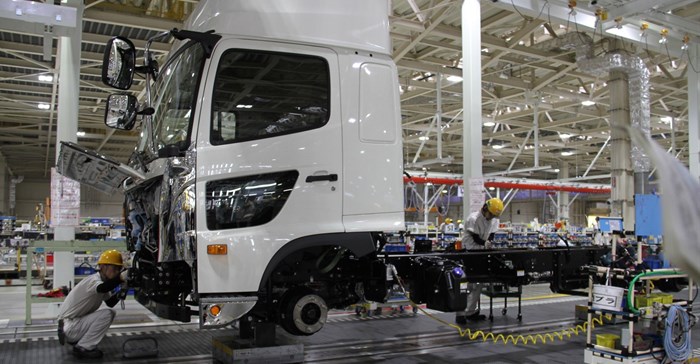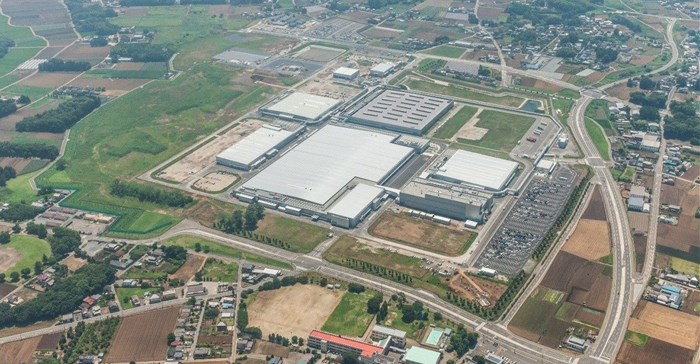
Top stories






More news

















Logistics & Transport
Uganda plans new rail link to Tanzania for mineral export boost








It recently started volume production and is said to have an initial capacity to produce 45,000 built-up units a year at a rate of about 100 a day working two eight-hour shifts.

This is a world-class, state-of-the-art truck manufacturing facility with a high proportion of robotisation – including 95% of the cab welding and 95% of the painting – to ensure the highest quality standards and production consistency. It includes more in-house manufacturing than previously to streamline and simplify assembly operations.
The factory operates on a modular system, using a single assembly line with the ability to provide the right products at the right time to meet market demand. Using 26 sub-assembly lines and one main assembly line the layout of the new plant enables Hino to increase productivity by 20%. Previously these three truck models were each built on a separate assembly line.
The Koga plant began production of knocked-down kits for assembly outside Japan in 2012, due to increased overseas demand. It started production of new generation trucks earlier this year. At the end of August production of older model Hino trucks were transferred from the Hino plant in Tokyo to Koga. Full production began in September.
Koga is now considered the “mother factory” for all Hino heavy-and medium-duty trucks. It also serves Hino’s various overseas operations and is the export base for knocked down (KD) and completely knocked down (CKD) kits for overseas assembly in 22 countries.

The new plant which is situated on an 850,000 m2 greenfield site and employs 2,000 people, is built using many environmentally-friendly features. These include using renewable energy, natural light, and LED bulbs to lower electricity usage, while workers benefit from efficient air conditioning which cools or warms the air only up to the height of the operators, thereby saving energy. CO2 emissions have been cut by 20% and water consumption is reduced by 65% compared to a similar plant without these latest environmental initiatives.
Hiroshi Kokaji, executive vice president production, says that having the Koga plant in full operation has enabled Hino to streamline overall production processes, including those at other Hino plants in Japan. Increased efficiencies at the Nitta plant, which makes components and the Hamura plant, which produces 300-Series light-duty trucks, are contributing to Hino being able to further improve productivity in its Japanese manufacturing operations.